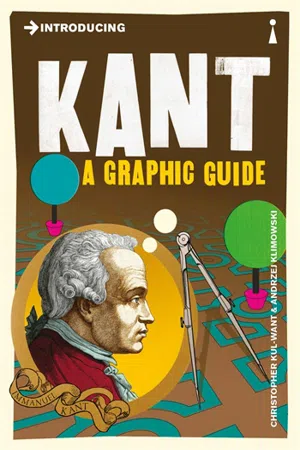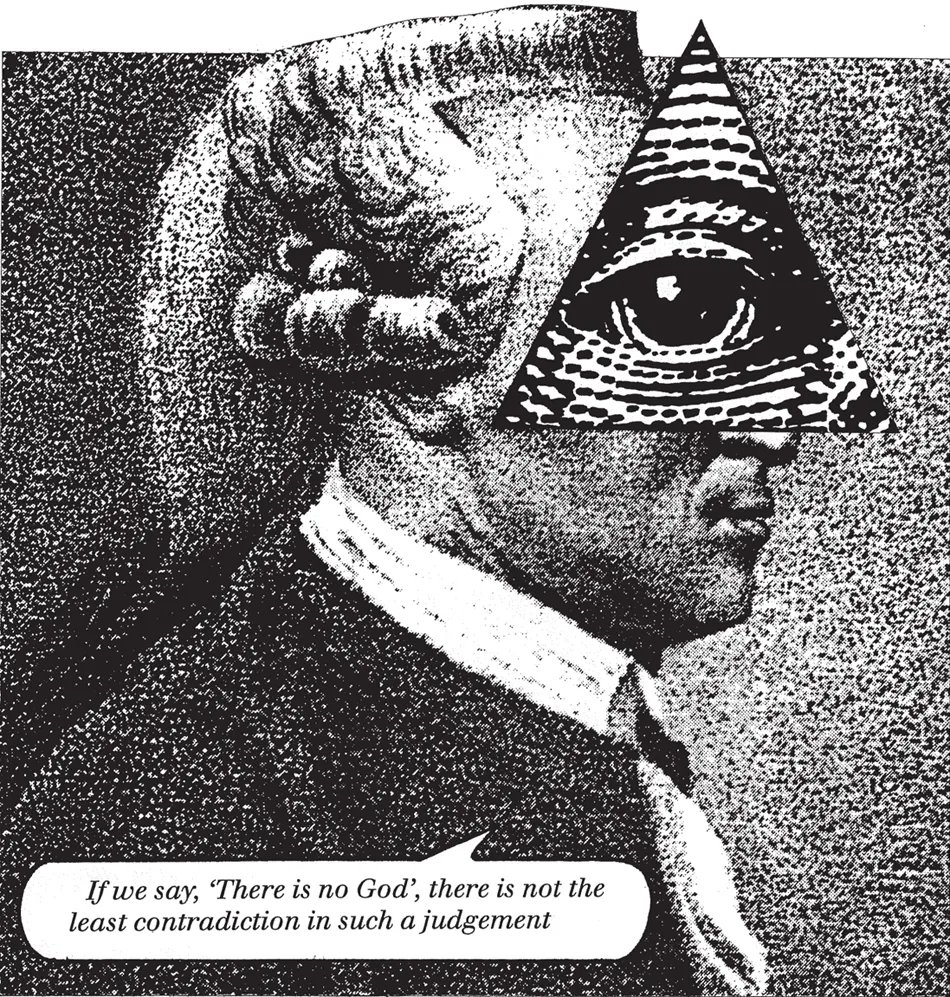
- 176 pages
- English
- ePUB (mobile friendly)
- Available on iOS & Android
About this book
Immanuel Kant laid the foundations of modern Western thought. Every subsequent major philosopher owes a profound debt to Kant's attempts to delimit human reason as an appropriate object of philosophical enquiry. And yet, Kant's relentless systematic formalism made him a controversial figure in the history of the philosophy that he helped to shape. Introducing Kant focuses on the three critiques of Pure Reason, Practical Reason and Judgement. It describes Kant's main formal concepts: the relation of mind to sensory experience, the question of freedom and the law and, above all, the revaluation of metaphysics. Kant emerges as a diehard rationalist yet also a Romantic, deeply committed to the power of the sublime to transform experience. The illustrated guide explores the paradoxical nature of the pre-eminent philosopher of the Enlightenment, his ideas and explains the reasons for his undiminished importance in contemporary philosophical debates.
Tools to learn more effectively

Saving Books

Keyword Search

Annotating Text

Listen to it instead
Information

Early Life


This allowed for a certain upward social mobility in the academic profession, owing to its particular economic and class structure.

We stress above all the felt power of God’s grace to transform the believer’s life through a conversion of “born again” experience.
In religious controversy, we urge that the aim should be to win over the heart of one’s opponent rather than to gain intellectual victory.

Theoretical classes were designed to insist upon the topics’ relation to religious and theological questions.



The Enlightenment
Table of contents
- Cover
- Title Page
- Copyright
- Contents
- Early Life
- Conclusion
- Further Reading
- Author’s acknowledgements
- Artist’s acknowledgements
- Index
Frequently asked questions
- Essential is ideal for learners and professionals who enjoy exploring a wide range of subjects. Access the Essential Library with 800,000+ trusted titles and best-sellers across business, personal growth, and the humanities. Includes unlimited reading time and Standard Read Aloud voice.
- Complete: Perfect for advanced learners and researchers needing full, unrestricted access. Unlock 1.4M+ books across hundreds of subjects, including academic and specialized titles. The Complete Plan also includes advanced features like Premium Read Aloud and Research Assistant.
Please note we cannot support devices running on iOS 13 and Android 7 or earlier. Learn more about using the app